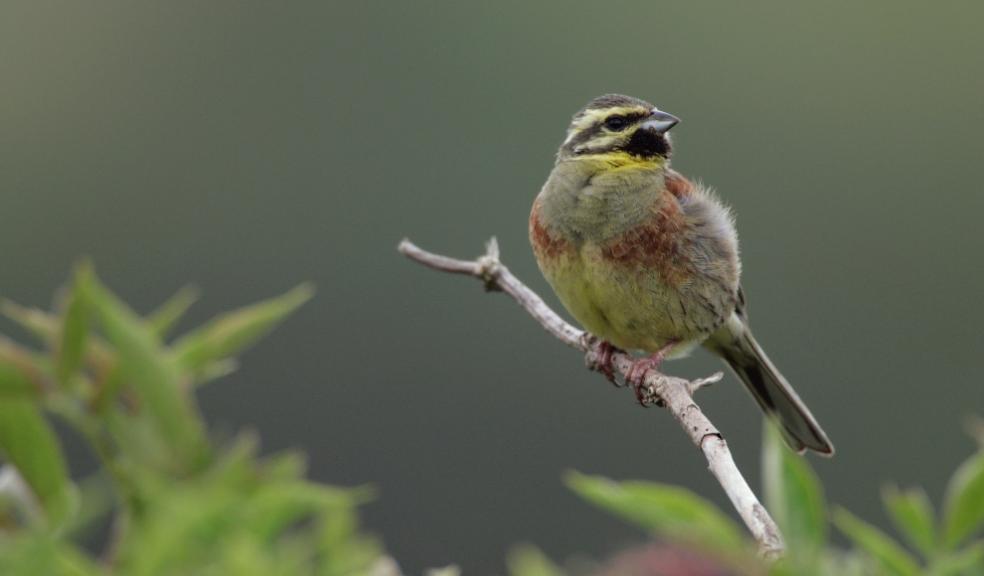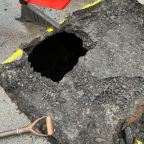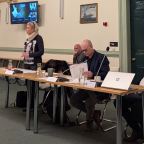
Volunteers needed to help one of the West Country’s special birds to thrive
The RSPB are appealing for volunteers across Devon and Cornwall to help them carryout their annual Cirl Bunting Monitoring, between April-August of this year. In partnership with Natural England, the RSPB have launched an exciting online Cirl Bunting Action Hub where people can register to take part in the survey, discover more about this special bird.
Cath Jeffs, RSPB Conservation Officer, said: “Taking part in the Cirl Bunting Survey is a fantastic opportunity to get to know the amazing wildlife on our doorstep. As well as hopefully spotting a cirl or two, volunteers will discover the other farmland bird species they share their local patch with. And most importantly, survey volunteers will be contributing directly to science. The data that volunteers help us gather will allow us to spot trends in cirl numbers, so that we can identify any early warning signs and act quickly to help those cirl populations in greatest need”.
Volunteers in Devon and Cornwall will be asked to visit the new online Cirl Bunting Action Hub to register to take part in this year’s survey, visit: https://cirl-buntings-rspb.hub.arcgis.com/
Here volunteers can select a square local to their home on the RSPB’s survey map and plan a survey route through their chosen patch along Public Rights of Way and covering the areas that cirl buntings are likely to make their homes.
Phil Grice, Senior Ornithologist at Natural England said: “We are delighted to see the development of the Cirl Bunting Action Hub, encouraging local people to survey their local cirl buntings. Information of this sort provides vital underpinning evidence for our continuing work with this species, ensuring that we can take the right actions in the right places to maintain and, hopefully, further recover the population.”
Volunteers will be asked to visit their chosen local square twice – first visit before the end of May and second visit anytime from June to the end of August, leaving two weeks between visit one and two. They will then record information about any cirl bunting they see or hear. And submit their findings either online or via post.
Nigel Hewitt, RSPB Volunteer said: “Having been a volunteer on the RSPB Cirl Bunting Project for over 20 years I have watched the steady growth of the population and now regularly hear cirls singing on sunny days around the lanes of South Devon. Hopefully the new Cirl Bunting Action Hub will encourage more people to volunteer and provide information to enable the RSPB to build on this progress.”
Cirl buntings were once widespread across farmland in southern England. However, after World War II the population severely declined and cirls were nearly driven to extinction in the UK. By 1989, there were fewer than 120 pairs recorded, largely restricted to south Devon and mostly confined to coastal farmland between Plymouth and Exeter.
In 1991 the RSPB set up the Cirl Bunting Project in partnership with Natural England, to identify the potential causes of the birds’ decline and work with wildlife-friendly farmers and other landowners across Devon and Cornwall to the cirls’ improve habitat. At the last count there were over 1000 pairs of cirls recorded. To help the continued success of this species, the population needs to be monitored to ensure cirls continue to flourish, and this is where you come in.
Cath continued: “You don’t need any specialist skills to take part in the survey, other than an interest in birds and a pair of binoculars! Our new Cirl Bunting Action Hub offers guidance on how to identify a cirl by sight and by their song. Also, if the easing of lockdown allows, we hope to be able to run some training days to help volunteers prepare for the survey - just keep checking the Hub for details. With your support we can make sure cirl buntings are never at risk of being lost from the UK again.”
As a charity, we can only continue this work if people support us. RSPB memberships enable us to carry out this work, securing the future of turtle doves in the future. More than a million people already support our work as RSPB members – will you join them today? www.rspb.org.uk













